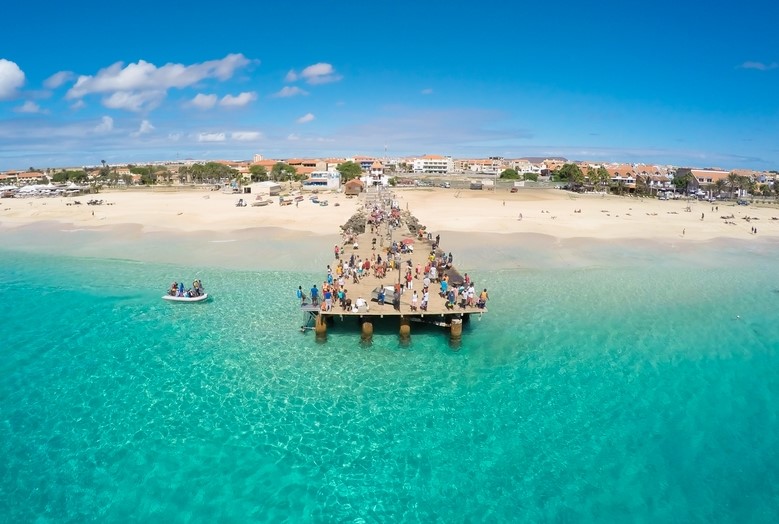Learn about the best times to visit and the challenges you might face during your trip.Cape Verde is a beautiful island nation located off the coast of West Africa.
It is known for its stunning beaches, warm climate, and rich culture. Many people dream of visiting this paradise. However, there are times when it might not be the best idea to go. In this article, we will explore when not to go to Cape Verde holidays.
We will look at weather conditions, peak tourist seasons, and other factors that could affect your trip.
Understanding Cape Verde
Cape Verde holidays are popular among tourists seeking sun, sea, and relaxation. The country consists of ten islands, each offering unique experiences. The main islands include Sal, Boa Vista, and Santiago. The capital city is Praia, located on Santiago Island.
The best time to visit Cape Verde is typically from November to June. During these months, the weather is pleasant, and the islands are less crowded. However, there are certain times when it is better to avoid traveling to Cape Verde.
When to Avoid Cape Verde Holidays
1. Rainy Season
Cape Verde has a dry climate, but it does experience a rainy season from August to October. During this time, the islands can receive heavy rainfall. This can lead to flooding and make outdoor activities difficult.
If you plan to enjoy the beaches or hike the beautiful trails, it is best to avoid these months. Rain can disrupt your plans and make it hard to enjoy the natural beauty of the islands.
2. Hurricane Season
Hurricane season in the Atlantic runs from June to November. Although Cape Verde is not directly in the path of most hurricanes, it can still be affected by storms.Traveling during this time can be risky.
Flights may be canceled, and accommodations might be hard to find. It is wise to check weather forecasts before planning your trip.
3. Peak Tourist Season
The peak tourist season in Cape Verde is from December to February. During these months, many travelers flock to the islands to escape the cold winter in Europe and North America.While the weather is great during this time, the islands can become crowded.
Prices for flights and hotels can also increase significantly. If you prefer a quieter experience, consider visiting during the shoulder season (March to May or September to November).
4. Local Holidays and Festivals
Cape Verde has several local holidays and festivals throughout the year. While these events can be exciting, they can also lead to disruptions.For example, during Carnival in February, many businesses close, and transportation can be limited. If you are not interested in participating in these celebrations, it may be best to avoid traveling during these times.
5. Health Concerns
Before traveling to Cape Verde, it is essential to consider health risks. The country has faced challenges with diseases such as Zika and malaria.Travelers should consult their doctor before going. Vaccinations may be recommended, and it is crucial to take precautions against mosquito bites.
If you are pregnant or have health concerns, it might be wise to postpone your trip.
6. Economic Factors
Cape Verde is a developing country, and economic conditions can vary. In recent years, the COVID-19 pandemic has impacted the tourism industry.Travelers should stay informed about the current situation. If there are travel restrictions or safety concerns, it may be better to delay your visit.
7. Personal Preferences
Finally, consider your personal preferences when planning your trip. Some travelers prefer a lively atmosphere, while others seek tranquility.If you enjoy solitude and quiet, avoid traveling during peak seasons or local festivals. Choose a time when the islands are less crowded for a more relaxing experience.
Summary of Key Points
Rainy Season: Avoid August to October due to heavy rainfall.
Hurricane Season: June to November can bring storms and cancellations.
Peak Tourist Season: December to February is crowded and expensive.
Local Holidays: Be aware of closures during festivals like Carnival.
Health Concerns: Consult a doctor about vaccinations and health risks.
Economic Factors: Stay informed about travel restrictions and safety.
Personal Preferences: Choose a time that aligns with your desired experience.
Conclusion
Cape Verde is a stunning destination, but it is essential to plan your trip carefully. Knowing when not to go can help you avoid challenges and ensure a more enjoyable experience. Consider the weather, tourist seasons, local events, and your health when planning your Cape Verde holidays.By being informed, you can make the most of your visit to this beautiful island nation. Enjoy the sun, sea, and culture that Cape Verde has to offer, but choose your timing wisely!
Frequently Asked Questions
1. What is the best time to visit Cape Verde?
The best time to visit is from November to June when the weather is pleasant and the islands are less crowded.
2. Is it safe to travel to Cape Verde during hurricane season?
While Cape Verde is not directly in the path of most hurricanes, it is best to avoid traveling during hurricane season (June to November) due to potential storms.
3. What should I do if it rains during my trip?
If it rains, consider indoor activities such as visiting museums or enjoying local cuisine in restaurants.
4. Are there health risks associated with traveling to Cape Verde?
Yes, travelers should consult their doctor about vaccinations and take precautions against mosquito bites to avoid diseases like malaria and Zika.
5. How crowded does Cape Verde get during peak season?
Cape Verde can become quite crowded from December to February, leading to higher prices and busy attractions.
6. What local holidays should I be aware of?
Be aware of local holidays such as Carnival in February, which can lead to business closures and limited transportation.
7. Can I enjoy Cape Verde if I prefer a quiet vacation?
Yes, visiting during the shoulder seasons or avoiding local festivals can provide a more peaceful experience.
